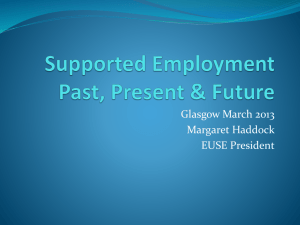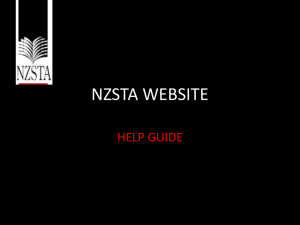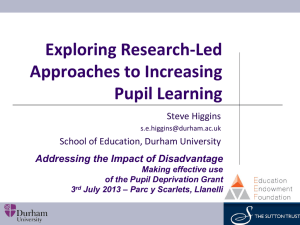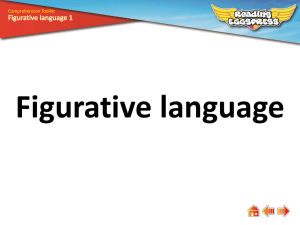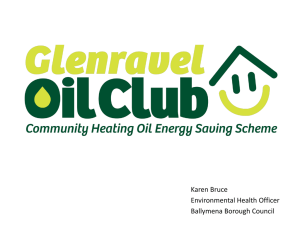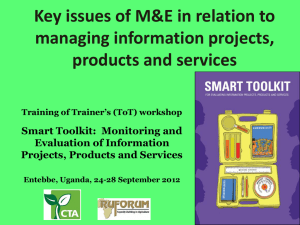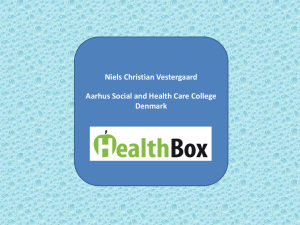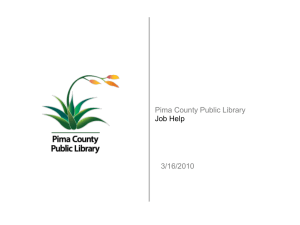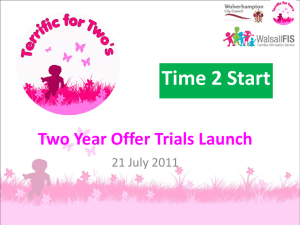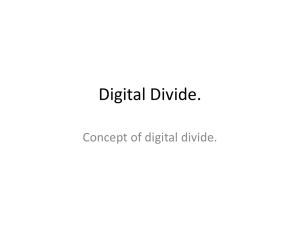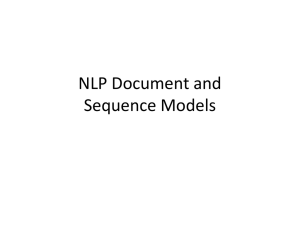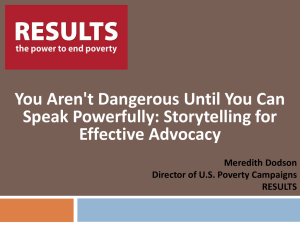Project Overview - des dabei
advertisement
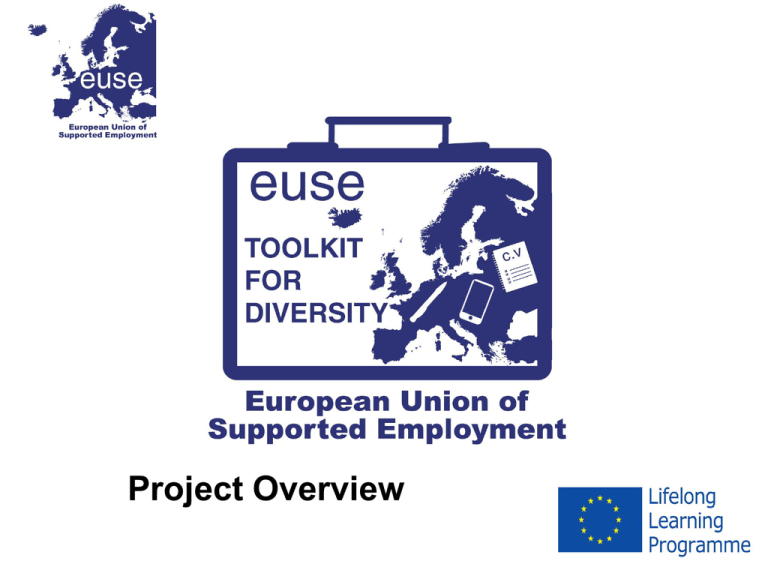
Project Overview Content • • • • • • Project Rational Aim and Objectives Partners and Focus Groups Project Overview Project Outputs Conclusions Project Rational • EUSE Supported Employment Toolkit Project • Funded under EU Leonardo Partnership Programme (2008 – 2010) • Number of partners 11 (lead partner Dundee City Council) • 11 Position Papers • 5 How to Guides • Available on www.euse.org Supported Employment Model Client Engagement Vocational Profiling Job Finding Employer Engagement On and Off the Job Support Key Learning • Supported Employment model has been mainstreamed in a number of EU states for people from other disadvantaged situation i.e. Portugal, Norway, Spain, Sweden etc • Many common issues effecting economic inclusion for all people from disadvantaged situations • Transfer of practice EUSE Toolkit for Diversity Funded under the Leonardo da Vinci Transfer of Innovation Fund and supported by the European Commission. EUSE Toolkit for Diversity (EUSET) EUSET is funded the EU Leonardo da Vinci Transfer of Innovation Programme with support from the European Commission Aim “To transfer and adapt the EUSE Toolkit for 4 cluster region groups of Europe for people from a disadvantaged situation other than people with disabilities” EUSET Objectives • To conduct a needs analysis in each of the partner states regarding the economic exclusion of specific disadvantaged groups • To review the SE Toolkit ensuring its applicability to specific disadvantaged groups • To customise the SE Toolkit to meets the needs of the specific disadvantaged groups for the 4 cluster groups • To test the SE Toolkit to at least 48 organisations interested in or delivering Supported Employment • To translate the SE Toolkit in to partners languages • To deliver capacity building training to all partners to deliver training on the toolkit to 24 organisations • To agree minimum standards for the delivery of the training • To conduct an external and internal evaluation of the project • To agree a sustainability strategy for the project EUSE Toolkit for Diversity Partners 1. Northern Ireland Union of Supported Employment –Lead partner 2. Dachverband berufliche Integration Österreich - Austria 3. Rytmus, Czech Republic 4. Kiipula, Finland 5. Theotokos Foundation, Greece 6. Irish Association of Supported Employment, Ireland 7. Skinner Cooperativa Sociale, Italy 8. Associacao Portuguesa de Emprego Apoiado (APEA), Portugal 9. Asociacion Espanola de Empleo con Apoyo (ASES), Spain 10. Activa, Sweden 11. Supported Employment Schweiz, Switzerland 12. Status Employment Ltd, UK Project Overview • • • • Project Timeline - 1st October 2012 – 30 September 2014 6 Meetings 6 Work packages Products – – – – – – – Needs Analysis Report Adapted Toolkit Translated Toolkit Website Capacity Building Training Training Materials Evaluation Report (interim & final) Target Areas • Offenders and ex-prisoners • Young school leavers (Not in education, employment or training) • People recovering from substance abuse Cluster Groups and Focus Areas Regional Cluster Partners Focus Group Central •Austria •Czech Republic •Switzerland Young School Leavers Northern •Finland •Sweden Young School Leavers Southern •Greece •Italy •Portugal •Spain People recovering from substance abuse UK & Ireland •England •Ireland •Northern Ireland Offenders and exprisoners Project Outputs • Needs Analysis – Each partner conducted desk top research, focus groups and/or one to one meetings with people from disadvantaged situation, organisation or policy makers – Partners produced a cluster group report for their focus group – Needs Analysis Report was collated and translated in to 9 languages – Available on www.eusetoolkit.eu Adaptations • Each partner organised Testing and Information sessions with at least two organisation from the target groups and two Supported Employment organisations • The aim of the Testing and Information sessions was to discuss the adaptations identified in the Needs Analysis Report • Agreed adaptations were made to the EUSE Supported Employment Toolkit • Available in 9 languages on www.eusetoolkit.eu Capacity Building and Training • Developed and delivered Capacity Building Training for all partners to deliver EUSE Toolkit for Diversity Training • EUSE Toolkit for Diversity Training developed • Each partner delivered training to at least two target group organisation • Minimum standards developed for deliver the training course. • Dissemination and exploitation – through out the life time of the project and beyond • Website developed – www.eusetoolkit.com • Internal and External Evaluation conducted In conclusion EUSE Toolkit for Diversity has produced:• Strong working partnership • Demonstrated how the Supported Employment model can be adapted to for people from other disadvantaged groups • Engaged with a range of organisations representing people from other disadvantaged situations • Conducted Needs Analysis Report • Adapted and translated (9 languages) the EUSE Toolkit for Diversity • Developed and designed capacity building training and Supported Employment training for the focus groups And finally will continue to promote Supported Employment people from other disadvantaged situations Thank you For further information:• www.eusetoolkit.eu • www.euse.org
